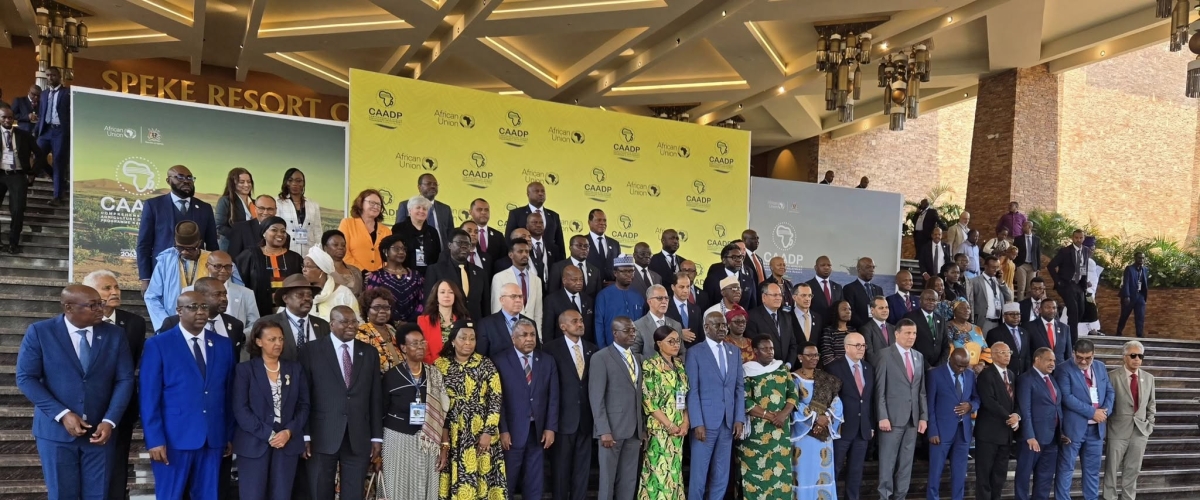
Kampala, Uganda—The African Union’s Comprehensive Africa Agriculture Development Programme (CAADP) meeting, held at Speke Resort in Munyonyo, Kampala, Uganda, brought together leaders, experts, and stakeholders to reflect on two decades of progress, address persistent challenges, and chart a transformative path forward. Adopting the Kampala Declaration marked twenty years of implementing CAADP and a re-commitment to implement this framework which will enable agriculture to contribute towards the ambitious goals of Agenda 2063: The Africa We Want.
H.E. Ambassador Josefa Sacko of the African Union Commission called for collective action to translate this vision into reality. She commended Ethiopia’s commitment of 6% of its national budget to agriculture as an example for other nations. Ambassador Sacko urged member states to prioritize food sovereignty, reduce import dependence, and fully leverage Africa’s agricultural potential.
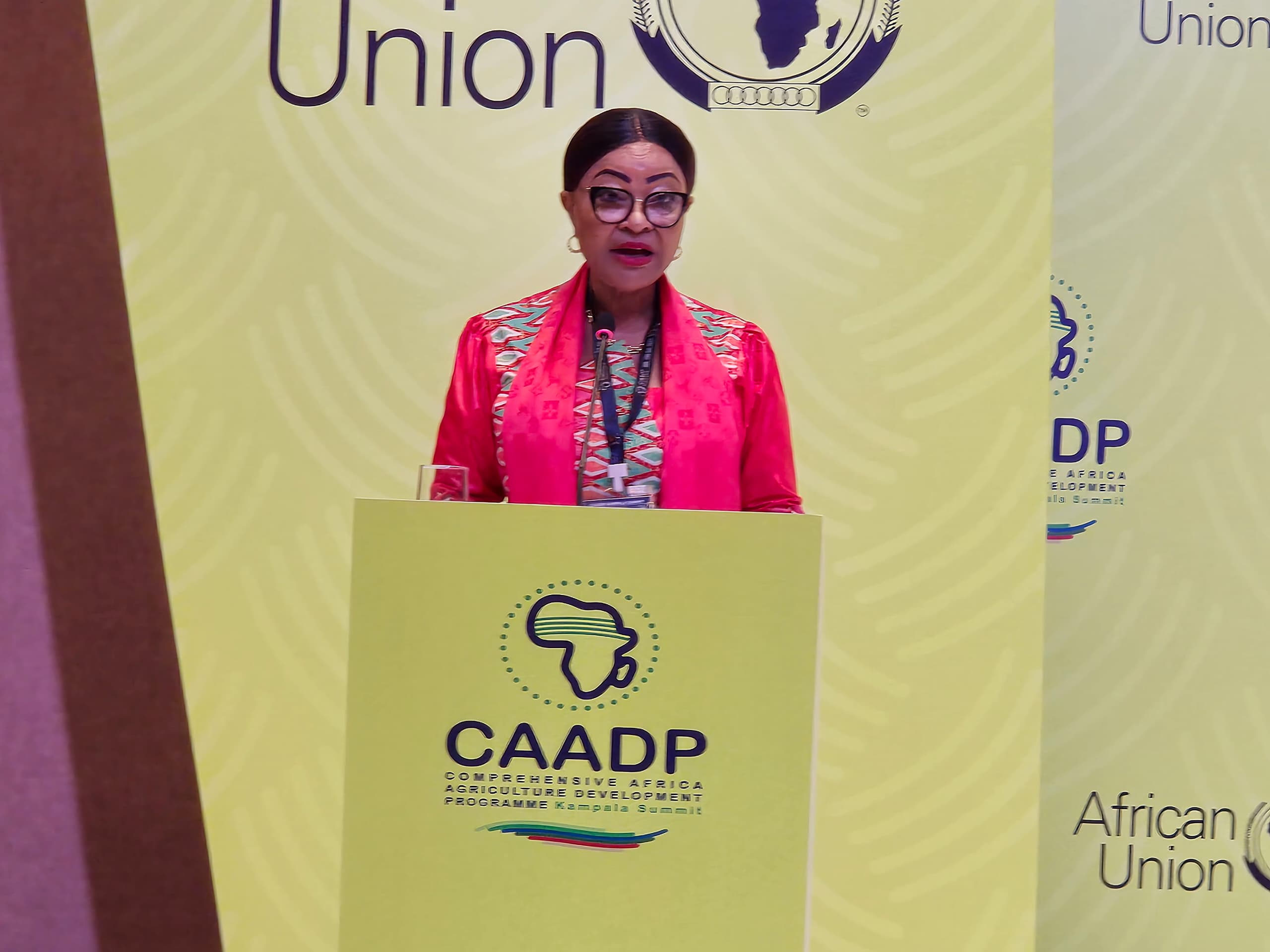
During the ministerial sessions, Uganda’s Prime Minister Rt. Hon. Nabbanja Robinah emphasized the critical role of agriculture in shaping Africa’s future. “Agriculture is undeniably the backbone of all the countries represented here, and for Uganda, it remains a critical sector,” stated the Prime Minister of Uganda during his remarks. “However, despite its significance, the sector’s potential remains largely untapped due to numerous challenges. These include low investment levels, limited adoption of modern technologies, overreliance on rain-fed agriculture, underutilization of available arable land, and insufficient engagement of youth. Additionally, inadequate skilled labour, weak value chain infrastructure, and limited intra-African trade further constrain its growth.
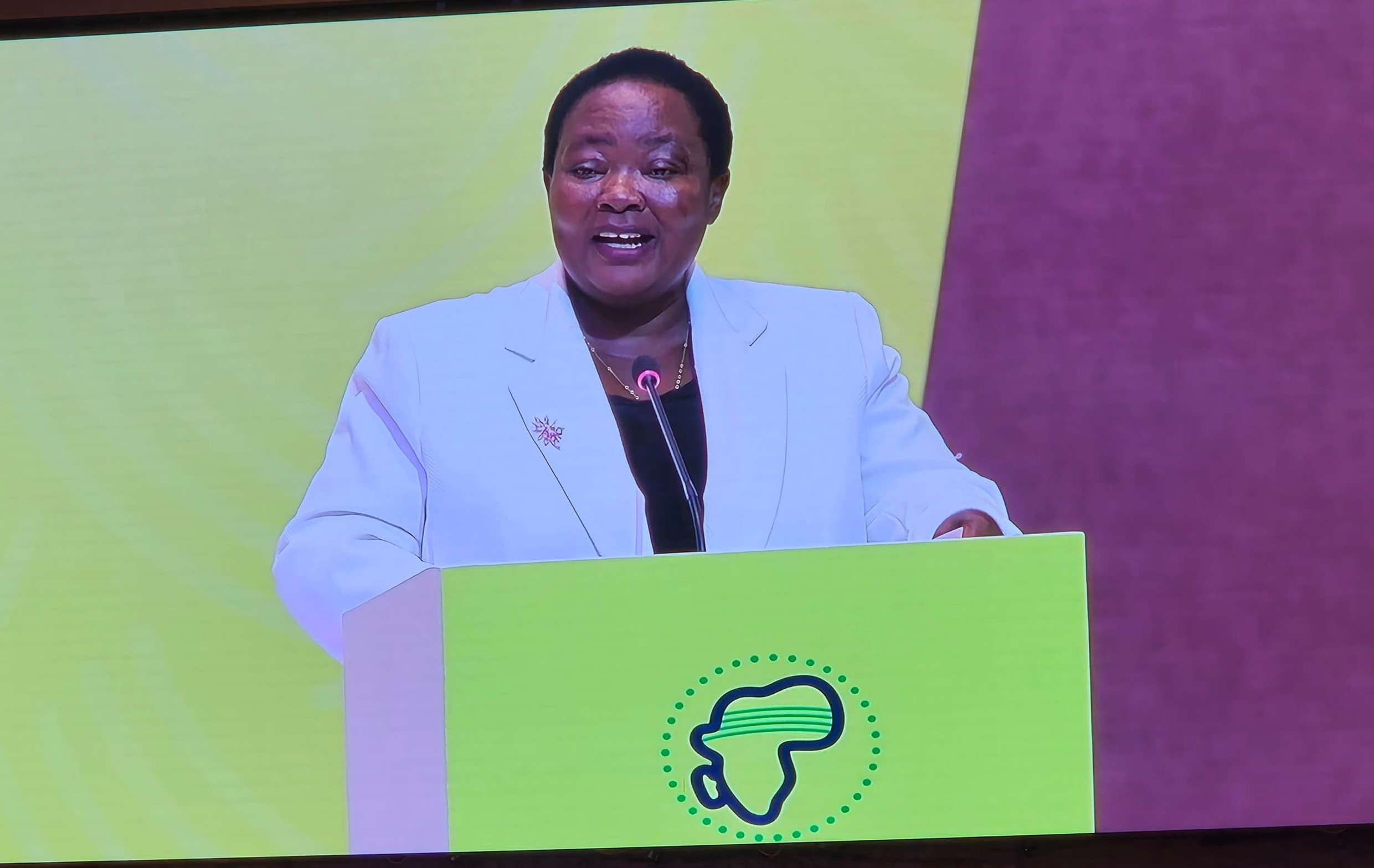
Agriculture cannot be viewed in isolation; it requires a complementary approach that integrates energy, market access, and other essential factors. A value chain approach is crucial to achieving sustainable results and unlocking the sector’s full potential. Despite limited access to irrigation and other resources, the region still possesses vast uncultivated arable land, presenting an opportunity for transformative agricultural growth. With strategic interventions and collaborative efforts, the sector can deliver substantial economic and social benefits,” he emphasized.
The Kampala Declaration builds upon the commitments made under the 2003 Maputo Declaration and the 2014 Malabo Declaration. It introduces a fresh agenda that emphasizes sustainable practices, agroecology, regional integration, and women and youth empowerment. Ministers from various member states shared their alignment with the new strategy, underscoring its coherence with national priorities. Ethiopia, for instance, reported remarkable progress in achieving wheat self-sufficiency within a year, a testament to the impact of focused policies and commitment. Djibouti highlighted its investment in value chains and proactive engagement of women and youth to build a resilient agricultural sector. Rwanda showcased its achievements in combining trade and technology under its national agricultural plans, reaffirming the potential of aligning regional goals with local priorities.
Ministers from various countries expressed strong support for the Kampala Declaration, highlighting its alignment with national priorities and its potential to drive transformative agricultural development across Africa. The AU Chair from Mauritania commended the declaration’s coherence with national strategies, particularly in land management, fisheries development, and industrial value addition. Djibouti’s Minister of Agriculture emphasized the continent’s immense potential, noting that Africa holds 65% of the world’s uncultivated arable land, and outlined the country’s focus on value chain development, with active involvement from women and youth. Seychelles, despite its limited agricultural land, has achieved over 25% food security and highlighted the importance of building resilient food systems and harmonizing regional reporting mechanisms. Rwanda shared its innovative strategies in livestock improvement and its commitment to expanding regional trade under the AU integration program. Meanwhile, ministers from Nigeria and Eswatini endorsed the declaration, stressing the need for inclusivity and addressing the needs of vulnerable populations to ensure no one is left behind in Africa’s agricultural transformation.
On the sidelines of the Summit, Prof. Cliff Dlamini, Executive Director of CCARDESA, held a strategic meeting with the Minister of Agriculture of Mauritius, Hon. Dr Arvin Boolell GOSK, to discuss CCARDESA's role in advancing agricultural research and development across the SADC region. During the meeting, Prof. Dlamini outlined CCARDESA’s mission to foster collaboration, knowledge sharing, and innovation among member states to address regional agricultural challenges. He emphasized Mauritius’s unique position as a SADC member with advanced agricultural practices and its potential to contribute significantly to regional initiatives. The discussion highlighted how Mauritius aligns with CCARDESA’s strategy, particularly in value addition, climate-smart agriculture, and technology-driven solutions. Prof. Dlamini encouraged Mauritius to participate in CCARDESA-led programs actively, leveraging its expertise to enhance knowledge dissemination and capacity building across the region. The meeting concluded with a commitment to deepen collaboration and ensure Mauritius’s continued engagement in driving sustainable agricultural transformation within the SADC framework. Hon. Dr. Arvin Boolell GOSK was instrumental in signing the CCARDESA Charter in Mauritius in 2010 as the Minister of Foreign Affairs.
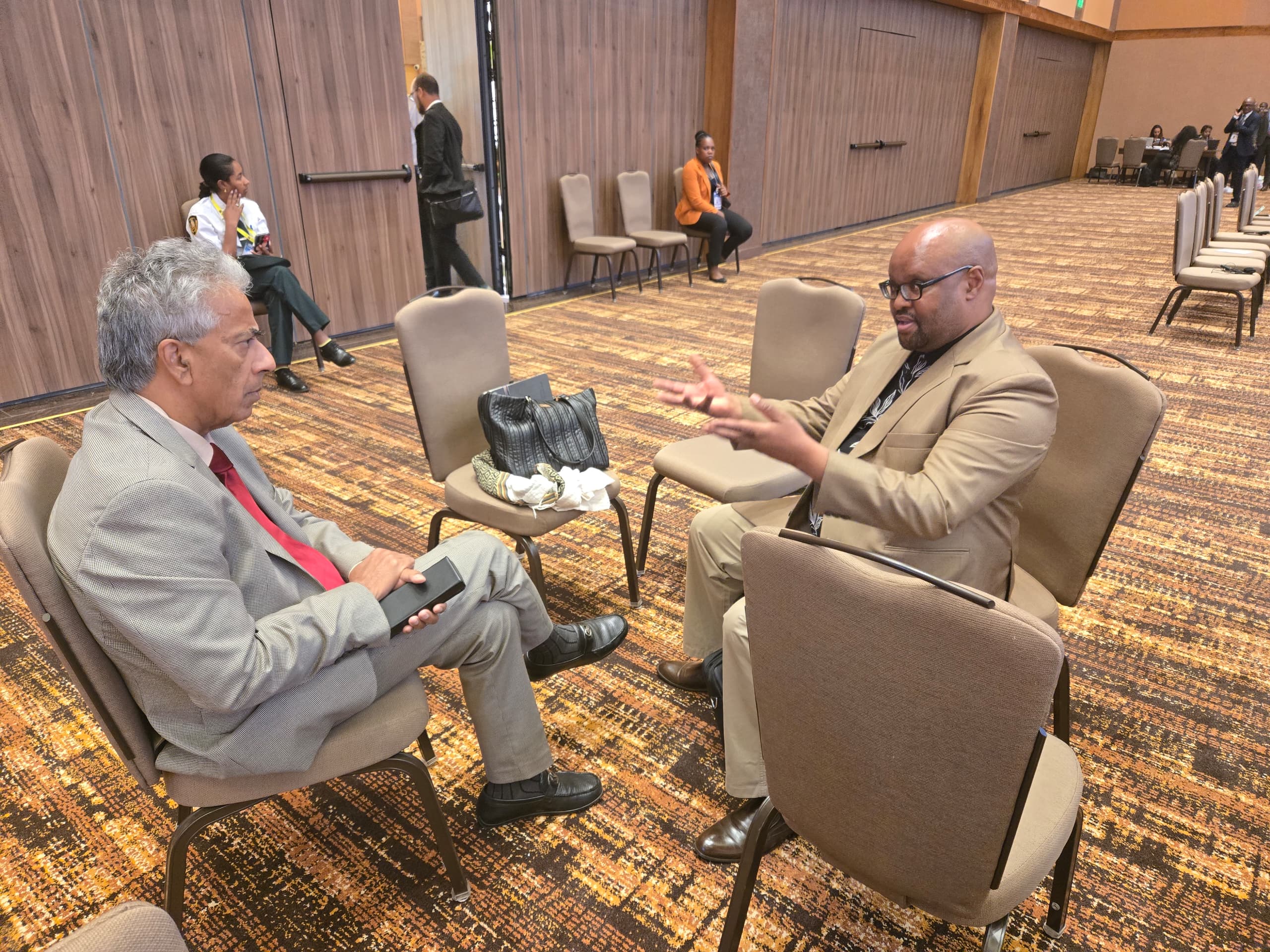
Furthermore, a strategic meeting was held between representatives from CCARDESA, led by Prof. Cliff Dlamini and Dr. Baitsi Podisi, and CIMMYT, represented by Dr. Moses Siambi, Dr. Paswel Marenya, and Dr. Hambulo Ngoma, to explore avenues for stronger collaboration and the integration of CGIAR-generated evidence into regional and continental policy processes. Discussions highlighted the need for translating CGIAR research findings into actionable formats that resonate with policymakers and increasing the engagement of CGIAR centers in high-level policy dialogues. The meeting emphasized the importance of enhancing joint program identification, activity planning, and resource mobilization to address gaps in bridging research and policy. As a sub-regional organization, CCARDESA was identified as a key player in creating a comprehensive database of regional human capital development initiatives, including those led by CGIAR. As a first step, it was resolved that CCARDESA would organize a meeting with CGIAR centers to review their human capital development efforts over the past 5–10 years. Additionally, CCARDESA and CIMMYT committed to reviewing the status of their Memorandum of Understanding (MoU) and ensuring a structured framework for collaboration moving forward.
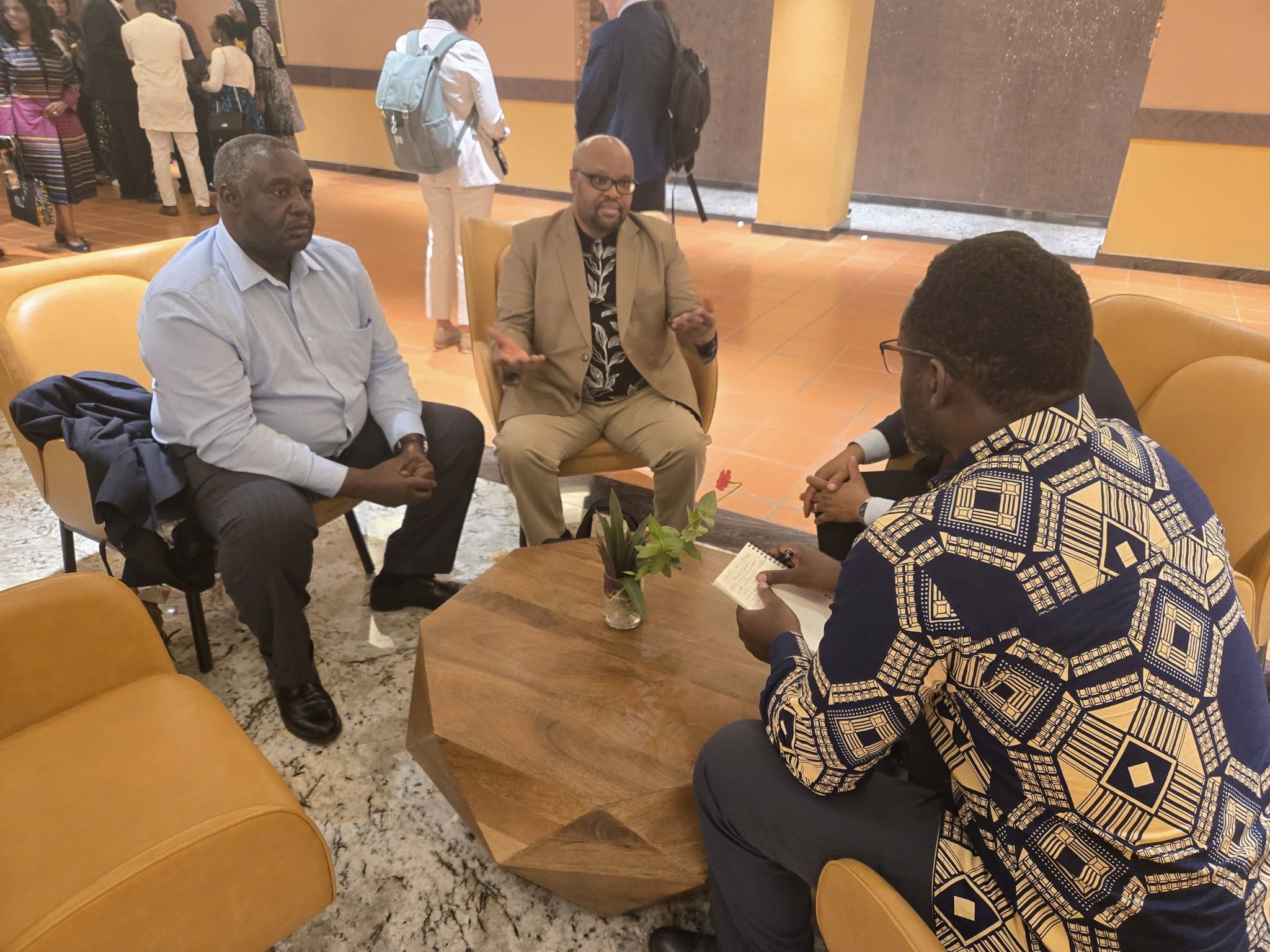
The role of women and youth in agricultural transformation also featured prominently at the Kampala Summit. A female farmer passionately pointed out that women produce 80% of Africa’s food yet are often marginalized in policy and resource allocation. Empowering women, she argued, is not only morally right but strategically essential for the continent’s agricultural future. Similarly, Africa’s youth, who make up 75% of the population, were recognized as a driving force for innovation. Discussions emphasized the importance of equipping young people with entrepreneurial and digital skills to engage meaningfully in agriculture.
As the meeting concluded, participants shared a resolve to ensure that the Kampala Declaration leads to tangible outcomes. The focus is now on increasing investment in agriculture, enhancing value addition to reduce Africa’s dependence on raw material exports, and fostering regional collaboration to harmonize policies and accelerate implementation.
In closing the summit, President of Uganda, H.E. Yoweri Kaguta Museveni, emphasized the critical role of agriculture in Africa's economic transformation. He highlighted the need to commercialize agriculture fully to achieve both food security and household income security, advocating for a strategic approach that includes intensive agriculture for small landholders and extensive agriculture for those with larger holdings. President Museveni also underscored the importance of value addition to agricultural products, pointing out that exporting raw materials results in significant financial losses and job opportunities for the continent. He illustrated that, "A Kg of coffee may give us USD 2.5 as a raw material. However, the same Kg, roasted, ground into powder, and packaged, will give the cleverer foreigners who add those steps abroad USD 40.
The Kampala Declaration marks a turning point in Africa’s agricultural journey. Leaders and stakeholders now face the critical task of turning this shared vision into actionable outcomes that benefit farmers, women, youth, and all citizens. With its vast resources, resilient population, and renewed focus, Africa has the potential to transform its agricultural sector into a powerhouse for growth and development.





